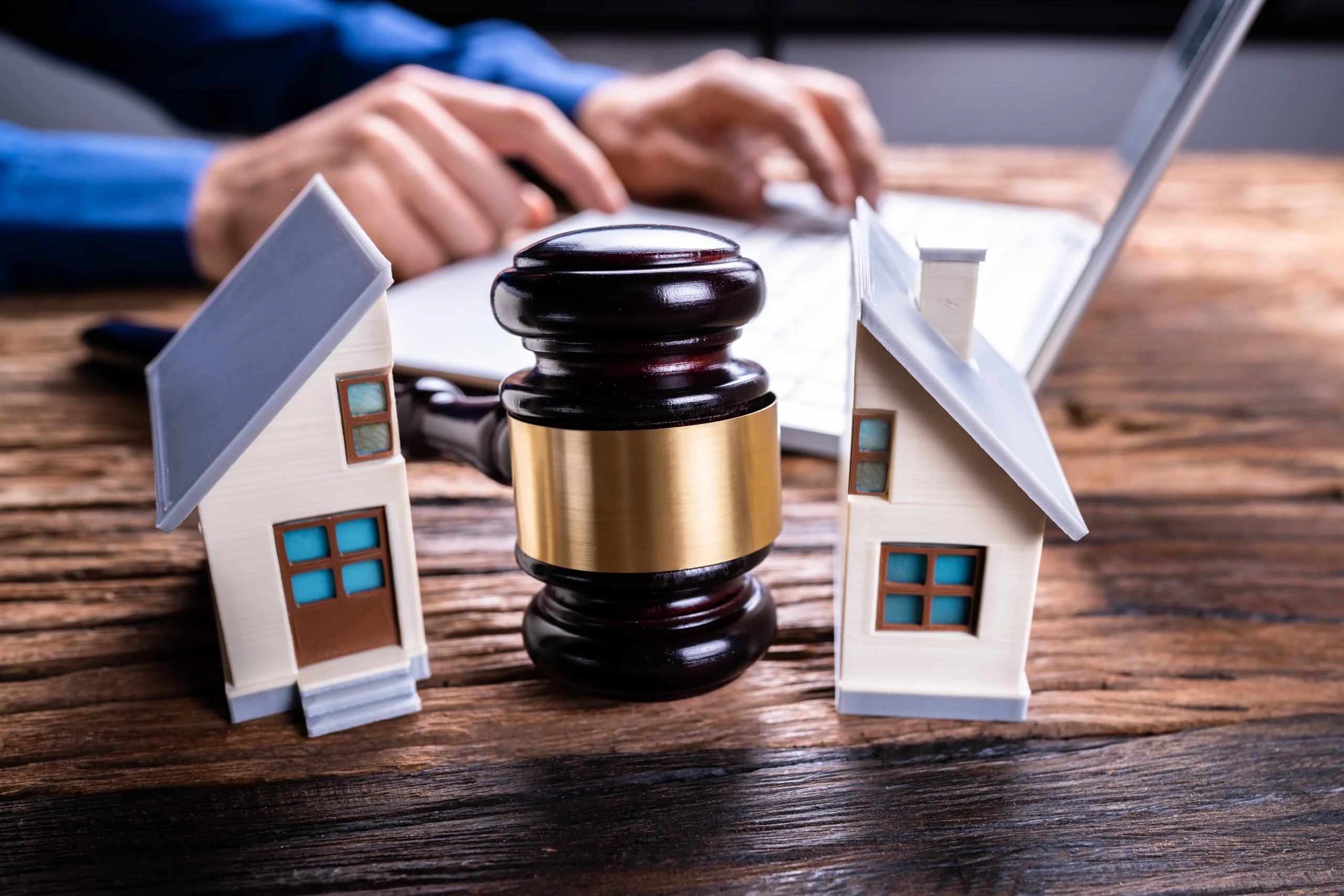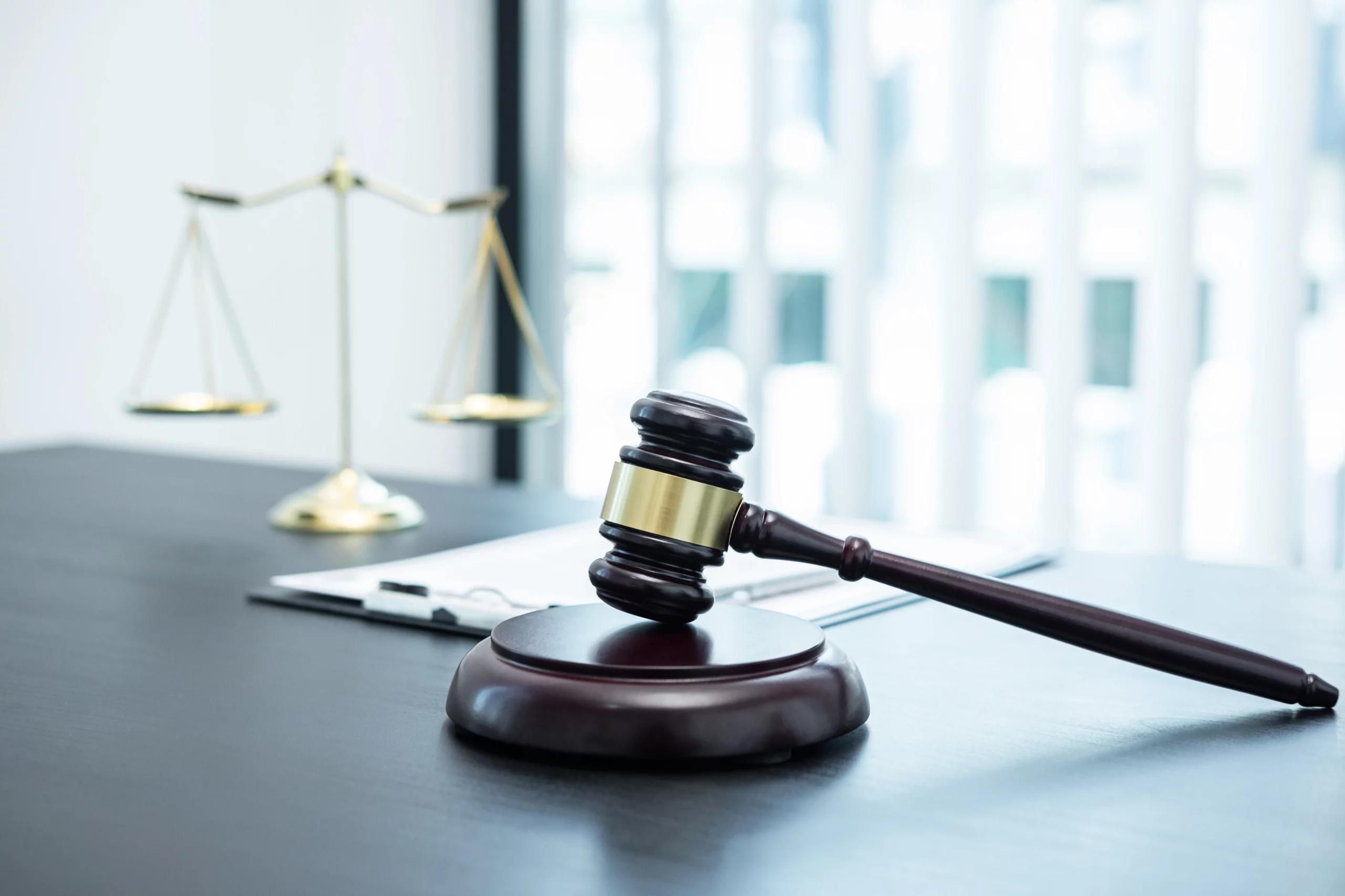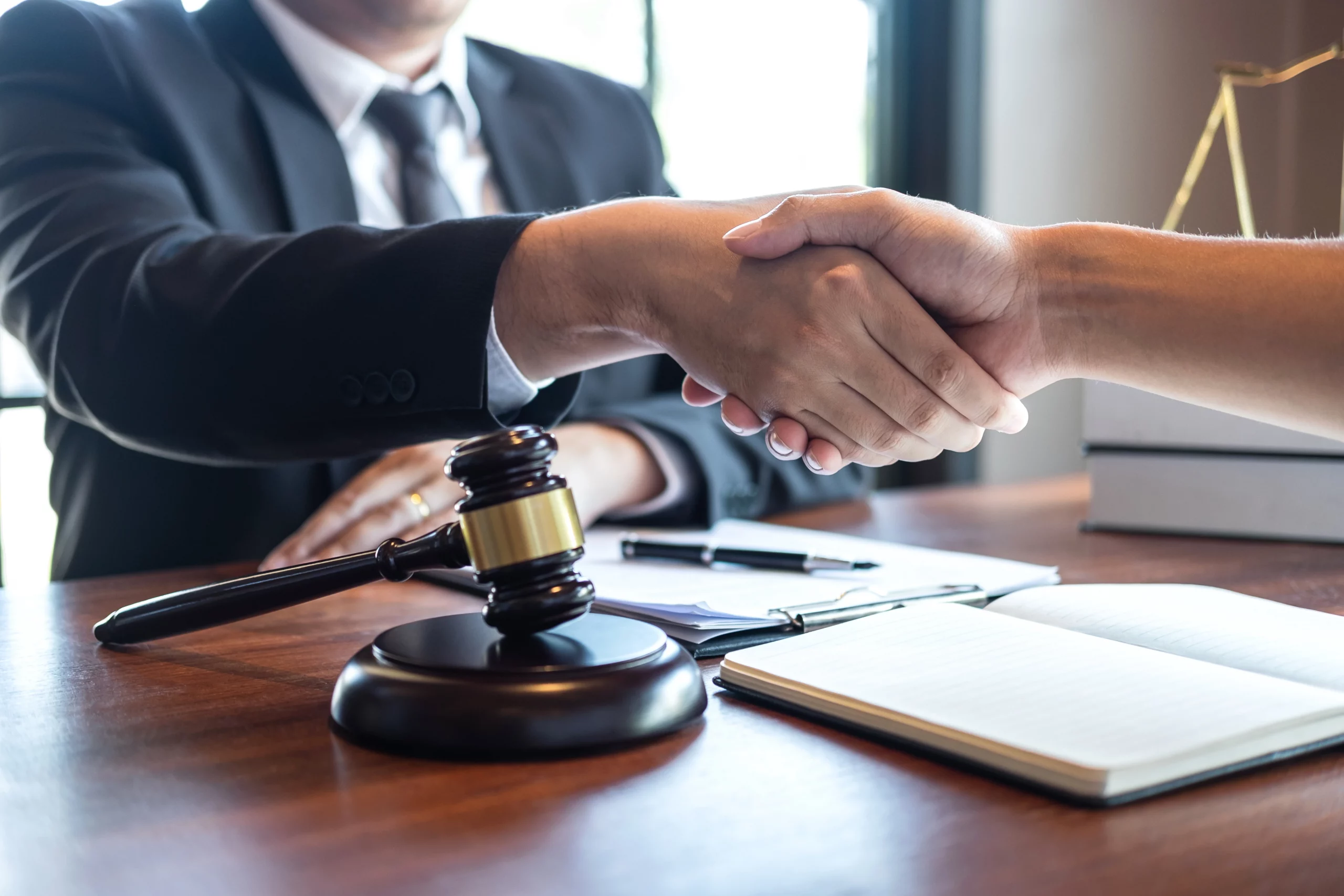Casino Accident Lawyers | Slip, Trip, and Falls
The Best Premises Liability Accident Law Firm
Premises Liability > Accidents > Casino
What you need to know about commercial and tribal casino liability for slip and falls and other accidents, and how to build a strong personal injury claim or lawsuit.
Casinos are playgrounds for adults. Enjoying our free time in a casino is a great way to spend it because of all the entertaining games, free beverages, entertainment, and people we get to meet.
All but two states, Utah and Hawaii, allow some type of live gambling.
American casinos rake in record-breaking money, topping $92 billion yearly.
With thousands of fun-seeking people visiting commercial and tribal-owned casinos daily, mishaps like slips and falls are sure to happen.
When you or a loved one have been wounded by casino carelessness, you have a right to seek reasonable compensation. Getting a reasonable payment depends on knowing who is liable for your injuries and how to establish a compelling insurance claim.
Free Consultation
NO FEE UNLESS WE WIN
Casino Accidents in Colorado
Every day hundreds of visitors come to Colorado’s casinos to enjoy gambling, food, and entertainment. Unfortunately, you could get hurt and end up with medical bills and other losses if you get into an accident at a casino or on the bus taking you there.
You can trust that your claim is being handled in the best way possible to maximize your recovery with the expertise of the Colorado casino injury attorneys at Warrior Injury Law. Colorado residents who have been injured at casinos are encouraged to call our firm at 719-300-1100 to speak with one of our helpful attorneys for free.
Colorado’s casino and gambling business generates billions of dollars each year. Though it is expected that casinos will take reasonable precautions to ensure the safety of their patrons, this is not always the case. Our professional Colorado casino accident attorneys are knowledgeable with Colorado premises liability law.
They can assist you in establishing what the casino failed to do or should have been doing, keeping you safe from damage. Slip-and-falls, hidden objects, snowy/icy sidewalks, electric shock, and many other scenarios come under Colorado’s premises liability legislation, and we have successfully represented clients in these cases.
Preserving evidence of your accident and its circumstances is crucial to any investigation into a premises liability case. If you haven’t already, our staff will write an “evidence preservation” letter to the casino to alert them to your injuries.
After gathering all the necessary information about your accident, a competent attorney for casino accidents in Colorado will use it to craft a strong case on your behalf. Our knowledgeable staff may consult with industry professionals in Colorado and around the country to determine what practices constitute “reasonable” casino management if necessary.
It Doesn’t Matter Where You Were Hurt; Our Attorneys Can Help You
Some of the casinos in Colorado are:
- Blackhawk: Ameristar, Monarch, Isle of Capri, The Lodge
- The Century, Johnny Z’s, Doc Holliday’s, and the Reserve are all located in Central City.
- Cripple Creek: Triple Crown, Double Eagle, Wildwood, Bronco Billy’s
- Ignacio and Towaoc: Ute Mountain, the Clear Blue Sky Ute
Colorado’s casinos are located around the state, and we can help you regardless of the casino’s location or size. Our lawyers have represented individuals in personal injury lawsuits all around Colorado.
They have a track record of success in cases involving some of the largest corporations in the United States. We welcome calls from anybody in Colorado or beyond to chat with our gambling injury lawyers about your legal options.
With today’s technological improvements, we can communicate over the phone or through video conference and even go out of state to meet with you. Warrior Injury Law is here to assist you if we can. To that end, we will do everything in our power to ensure that our scheduled meetings are accessible and useful to you.
Contingency Fee Representation
Our Colorado casino accident lawyers offer contingency fee representation. If we cannot secure your financial compensation for your claim, you do not owe us any money for our efforts. Since we only get paid if we win your case, we will spend a lot of time talking to you to ensure we’re the right fit.
If we do decide to work together, it usually implies that we believe in your case and that our hard work has good odds of culminating in a beneficial outcome for you – but we cannot guarantee a successful outcome in any instance.
If you or a loved one has been hurt at one of Colorado’s many casinos, we urge you to pick up the phone and call us today at 719-300-1100 for a free consultation with one of our skilled Colorado casino injury attorneys.
Incidents and Maladies Common in Casinos
The most popular casinos are enormous properties with every imaginable luxury available to guests, on and off the gambling floor. Casinos are required to keep their premises and mechanical equipment clean and safe. And yet, mishaps occur daily:
Injury From A Slip And Fall
Most incidents in casinos involve guests slipping and falling. Restaurants, gaming areas, hotel rooms, shuttle buses, swimming pools, and parking lots are all potential danger zones for guests of casinos.
Sick from eating spoiled food? Every year, casinos serve tens of thousands of meals to patrons in their various dining venues and provide room service and quick-service options. Food poisoning can be caused by several factors, including food being left out for too long, a dirty working environment, and filthy hands.
Slot Machine Seats That Don’t Work
It’s not uncommon for people to hurt themselves on damaged furniture in heavily trafficked locations. Slot machines in casinos typically provide seating for hundreds of people. Every day, thousands of customers sit and swivel on those chairs; over time, they wear out and might cause serious injury if they aren’t replaced.
Damages From Shuttle Buses
Shuttle buses connect many casinos with nearby hotels and airports. A collision with another car is a real possibility when drivers are irresponsible. Aisle obstructions, wet steps, and other hazards on shuttle buses can also cause passengers to slip and fall.
Burns
Casino patrons risk scalding by overly hot water from the sink. Accidental burns can also occur by using substandard hotel appliances like irons, coffee machines, and hair dryers. Infections and persistent scars are possible outcomes of severe burns.
Casino goers are a prime target for thieves since they often possess large sums of money, adorned with valuable jewellery, or in an isolated location. Hostel rooms are not immune to theft. Pickpockets, thugs, robbers, and rapists are all possibilities for casino patrons.
Damages Caused by Casinos’ Carelessness
If you are injured due to the carelessness of casino staff, the casino could be held liable. Casinos often fail in these areas, which can lead to injuries:
- Hiring incompetent workers (such as cooks, security guards, and bartenders);
- Leaking floors;
- Poorly maintained furniture or equipment; unsafe lighting;
- A lack of security;
- A failure to maintain buildings and parking garages;
- An abundance of alcoholic beverages served; and so on.
Infractions at a Dram Shop
If a casino is negligent and causes you harm, it doesn’t matter if you’re on their premises or not. A casino may be liable for your damages if a drunk motorist causes an accident because they were overserved drinks there.
Bars, taverns, and other establishments where alcoholic beverages are sold are collectively known as “dram shops,” an archaic name. Attorneys and lawmakers still use the word.
Most states have dram shop laws that allow injured persons to seek compensation against the casino that supplied the at-fault motorist.
Casinos can be liable under dram shop regulations if they knowingly offer alcohol to a visibly intoxicated patron.
You should consult with a personal injury attorney if you or a loved one has been hurt in a casino-related drunk driving accident. There is no ‘dram shop’ statute in several jurisdictions. However, this does not apply to the casinos operated by Native American tribes.
Enabling Gambling Addiction
Enabling Compulsive Gambling Nine out of ten persons who gamble at casinos are expected to do it responsibly. While just a fraction of people who visit casinos each year have a problem with gambling addiction, the number of people whose lives are negatively impacted by gambling is nevertheless high.
Casinos used to be immune from legal responsibility for the tragic outcomes that might result from gambling addiction, such as bankruptcy, the loss of a loved one’s estate, suicide, or criminal activity.
Assumption of Risk is a common defence by casinos to justify their customers’ willingness to risk financial ruin when playing games.
Slowly, casinos are beginning to accept responsibility for the public’s welfare regarding gambling.
Following numerous high-profile murder cases due to excessive gambling, the American Gaming Association (AGA) developed a Code of Conduct for Responsible Gaming.
Members of the AGA, including casino owners, who take the pledge, commit to doing the following:
- Foster the promotion of responsible gambling;
- Work to prevent gaming among minors.
- Serve alcoholic beverages in moderation
- avoid irresponsible advertising.
It remains to be seen how the AGA agreement may impact lawsuits alleging damages due to compulsive gambling. Consult a local personal injury attorney if you or a member of your family has been harmed due to gaming at a casino.
When Does a Casino Have Responsibility for Damages?
Casinos thrive on foot traffic and invite tens of thousands of visitors per day. Gambling establishments have the same duty to safeguard their customers from harm that any other business has under premises liability legislation.
Casinos must take all precautions necessary to prevent injury to their customers, as determined by the law.
Casinos are only obligated to protect their customers from those risks that a competent and reasonable casino manager knows, or should know, could lead to physical harm.
A casino manager, for instance, is aware or should be aware of the significance of routine inspections of slot machine chairs to protect patrons from harm.
Example: Player in Slot Machine Hurt by Falling Chair
Shirley and her two best friends were pumped to have a great start to their weekend holiday. The three females headed towards the brightly glowing slot machines. When Shirley sat down to play, her chair collapsed, tumbling to the floor, where she suffered a sprained back and a broken wrist.
In this case, the casino manager’s failure to regularly inspect and fix the game floor swivel chairs resulted in foreseeable harm. Shirley’s losses might be attributed to the casino, making it liable for them.
A casino is negligent if an owner or employee commits an error or fails to take action that a reasonable person would have taken. When the casino’s negligence causes someone to get wounded, it indicates the casino breached its legal duty of care.
Because the casino failed its obligation, the affected person is entitled to reimbursement for damages.
Damages include medical and treatment expenditures, out-of-pocket spending for medicines and other medical charges, lost wages, and pain and suffering.
When the Injured Person is Responsible
Any compensation you seek might be reduced or even denied if you contributed to the events that resulted in your injuries.
Personal injury claims in Alabama, Maryland, North Carolina, Virginia, and the District of Columbia are impacted by Contributory Negligence laws, which are extreme injury laws. If you are found to be even partially responsible for your damage, you will not be eligible for compensation under the “pure contributory negligence” criterion.
In most jurisdictions, you can file a personal injury claim even if you were partially to blame for your injuries because of the application of comparative negligence or modified comparative fault laws. Even if you were 99% at blame for an accident, you might still be able to sue for damages in a state that follows the pure comparative negligence rule.
Damage awards in states with modified comparative fault are reduced in proportion to each party’s degree of fault. Some states have a “50% rule” or “51% rule” that bars victims from receiving compensation if they can be shown to have contributed to the causes of their injuries.
Example: Breaking a Chair and Causing an Injury
An employee at a casino in Alabama saw a broken swivel chair near a slot machine during a normal examination of the gaming floor chairs. The employee posted a big “Out of Order” notice on the slot machine in short order.
Marco was extremely intoxicated and desperate to win back part of his gambling money. Marco thought the broken slot machine was due for a big “hit,” so he shifted the caution flag and sat down. The chair broke apart, and he fell, sustaining a concussion.
Most reasonable casino guests would avoid sitting at an out-of-order slot machine. Because of his carelessness, Marco got hurt when he tried to operate a machine that was clearly marked “Out of Order.”
Marco cannot claim any damages from the gambling establishment due to sheer comparative negligence.
Cases involving Tribal Law and Native American Casinos
Native American reservations often host casinos run by local tribes. Luxury hotels, fine dining, refreshing pools, exciting entertainment, and, of course, exciting gambling are all available to you, just as they would be at any other casino. However, tribal lands are sovereign.
If you’re harmed in a casino on tribal land, the state’s personal injury laws may not apply.
Sovereignty denotes self-governing without interference from outside influence.
Tribal sovereignty means the federal government recognizes the authority of Native American tribes to govern themselves within United States borders. Tribal lands are not considered U.S. territory and are not subject to state law.
When an injured player sues a Native American casino, the case is handled differently than one filed against a typical casino. Casinos on tribal land always enjoy immunity from litigation filed in state courts.
Sometimes, casinos would surrender their immunity for areas of their casino to make them more tempting to outside customers. It’s a method used in advertising. They might release liability for the bar or restaurant, but not the whole building. Remember that no indigenous people have ever relinquished their complete protection from legal action.
Fortunately, the claims process for a tribal casino’s insurance provider is typically very similar to that of a standard liability insurance provider. If your claim is dismissed or you cannot settle, your only remedy will be to launch a personal injury lawsuit against the tribe.
The time restriction for filing an injury claim under tribal law might be substantially shorter than under state law, often only months. If you miss the tribe deadline for making a claim, you’ve forfeited your right to seek compensation.
Do not take the chance of coming up empty. If you were injured in a Native American-owned casino, you should discuss your legal options with an experienced personal injury attorney.
Complaints Against Profitable Gambling Establishments
A casino outside of Native American territory is treated the same way as any other business when making an injury claim against the property’s insurance provider. If you want to sue a casino and win, you have to prove that the casino was negligent and that its carelessness directly caused your losses.
You can prove the casino was negligent by showing:
1.You can claim the casino was negligent by showing: \s1. The casino has a duty of care to protect you from injury.
- The casino’s management either was aware of or should have been aware of the potentially risky scenario.
- Third, the casino was careless in not removing the risk.
- The negligence directly caused your injury.
- The damages have been verified.
Build a Strong Casino Injury Claim
The gambling industry is worth billions of dollars. Therefore casinos hire teams of lawyers and insure themselves against any financial losses. Whether you’re making an insurance claim or considering a lawsuit, it’s entirely on you to prove the casino is accountable for your injuries. Make a solid case by assembling supporting evidence.
Ask For Help
Ask to see the manager when you’re hurt. The supervisor will ensure that you get medical attention and will keep track of the details of your injuries and what caused it. If your injury is bad enough to require emergency medical treatment, ask them to contact 911.
Tell the casino manager exactly what happened. Give the manager a tour of your wounds and explain how you were hurt.
Show the management the shard of glass that cut you if you slid on a wine glass and fell on the dance floor. Avoid taking any risks. If the cut is deep enough, it may have severed a tendon or a blood artery and require sutures.
Ask the manager for a copy of the casino’s incident report and the insurance company’s contact information.
Care For The Sick
The paramedics will either administer immediate care or transport you to the nearest hospital emergency room, depending on the severity of your condition. Follow the paramedics’ orders and head to the hospital if they say it’s necessary.
If you aren’t taken directly to the hospital from the scene, you must get a medical evaluation as quickly as possible. Go to your family doctor or the local hospital emergency department if you’re feeling sick or injured. Ask the casino staff to assist you in getting immediate medical assistance if you are a non-local player.
Never put off getting medical help. The insurer would dismiss your claim immediately because the incident that caused your injuries did not occur at the casino.
Confer With Eyewitnesses
There must be witnesses. While friends and family members might be reliable witnesses, objective third parties are much more. Insurers are more willing to believe the testimony of objective third parties, such as independent witnesses when deciding whether or not to pay out on a claim against a casino.
Get as much information as possible from eyewitnesses by having them write down their accounts. Get a date and signature on the statement from the individual.
Picture yourself on the casino shuttle bus as your driver ignores a stop sign and collides with another vehicle. There was an issue with the seatbelt of the chair you were sitting in. Upon collision, you tumbled forward, striking your head on the floor. You can:
- Have other passengers check out your injuries and the broken seat belt.
- If anyone sees your seatbelt snap and you be thrown into the seat in front of them, they should write it.
- Just tell them the shuttle bus driver disregarded a stop sign to make sure they understand.
Your case will strengthen with the addition of witness statements.
Document your surroundings by taking photos and recording videos. Nowadays, mobile phones are great evidence-gathering tools in personal injury claims. For example, if you were in front of a slot machine and the door to the machine popped open, slamming you in the knee, use your cell phone and catch the door as it is.
You shouldn’t be shy about snapping some photos. Within minutes after reporting your injuries, someone will close the door. When it’s too late, you’ve missed your chance at greatness.
By recording their voices, take notes on what the boss and the staff have to say. A sincere apology serves as an implicit admission of guilt on the part of the casino for the malfunctioning door. These confessions are substantial proof of carelessness on your part.
Confirm Your Damages
A personal injury claim is null and void if the injured party has suffered no monetary losses. Your injuries must be substantiated by medical treatment documentation if you haven’t suffered any bodily harm. As a result, you have very little chance of winning a claim for mental anguish.
Your injuries and resulting damages must be documented. Obtain duplicates of your medical and mental health care records, including those from the ambulance service, the emergency department, and other facilities you visited. Keep all bills for prescriptions, bandages, crutches, and even parking at the hospital.
Inquire about a statement detailing the money you lost in the form of vacation, sick days, and bonuses due to the accident.
Get the Most Money Possible for Your Injury
Without the assistance of an attorney, you should be able to settle your claim for soft-tissue injuries sustained in a commercial casino, including lacerations, muscle strains, and broken bones.
After you’ve fully recovered, you can calculate your claim’s worth by adding up the money you spent on medical care, out-of-pocket costs, and time away from work. To account for emotional distress, double or triple the amount.
Include all supporting documentation like bills, receipts, witness statements, and photos with your written demand.
You should immediately talk to a competent local personal injury attorney if you were hurt at a Native-owned casino on tribal grounds. The lawyer will determine your claim’s potential worth and explain any potential obstacles you may face under tribal law.
Remember that there may be very little window of time to initiate a claim or lawsuit to obtain compensation from a casino under tribal law. You can’t risk finding out how well you do on your own in negotiations by waiting.
An attorney is necessary to maximize your compensation in cases involving claims against Native-owned casinos, complex matters like Dram Shop claims, and “hard” injuries, including spinal cord injuries, brain trauma, and lifelong scars.
Having your right to just compensation jeopardized would be a terrible mistake. Discovering what a skilled personal injury lawyer can accomplish for you is free of charge and carries no risk.

FREE CASE REVIEW
We are standing by ready, willing, and able to help you. You can schedule a free consultation here on our website, or give us a call and talk to us. Whatever you prefer, we will accomodate you!








